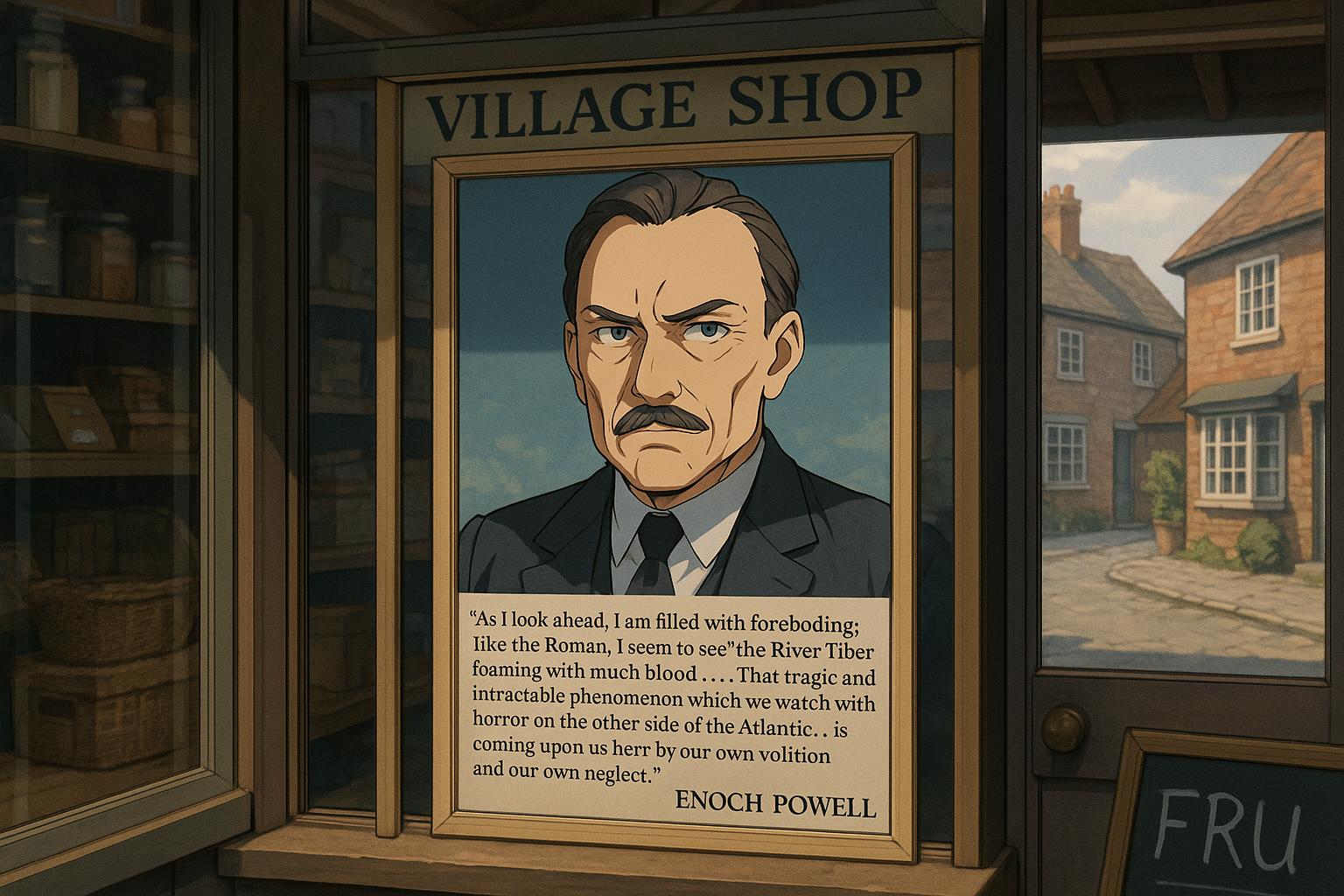A village shop in Cleobury Mortimer, Shropshire, is currently under police investigation following the display of a portrait of Enoch Powell alongside a portion of his notorious “Rivers of Blood” speech. Shopkeeper Elizabeth Griffiths asserts that her intention was to draw attention to the need for robust leadership during challenging political times. The framed image has sparked considerable debate, with West Mercia Police categorising the display as a “hate incident” after receiving a complaint regarding its content.
Enoch Powell, a former Conservative MP, delivered the incendiary speech in 1968, warning that unchecked immigration would render white British citizens “strangers in their own country.” The remarks caused an immediate uproar, leading to Powell's dismissal from the Conservative front bench, as his words were seen as both inflammatory and deeply divisive.
The term “hate incident,” as defined by policing guidelines, encompasses non-criminal acts that victims believe to be motivated by hostility or prejudice based on characteristics such as race or religion. This concept is particularly relevant in today’s climate, where discussions about immigration and national identity often echo Powell’s rhetoric.
Notably, recent remarks by Sir Keir Starmer, the leader of the Labour Party, have drawn comparisons to Powell’s language. Starmer warned that the UK risks becoming an “island of strangers” and vowed to take a firmer stance on immigration. Critics, including Labour MP Clive Lewis, have condemned the use of such comparisons, labelling them as regressive and potentially alienating communities.
Elizabeth Griffiths has reported receiving praise from customers for the display, asserting that it has been featured prominently since early February. She contrasts Powell’s portrait with images of figures such as Winston Churchill and St Francis of Assisi, attempting to frame the presentation within a broader historical context.
The debate surrounding Powell’s legacy is complex and continues to provoke significant discussion within British society. In 2018, faith leaders from Wolverhampton, including Bishop Clive Gregory, opposed a proposal to erect a blue plaque in Powell's honour, arguing that it would not only celebrate his contentious views but also exacerbate existing divisions.
The impact of Powell’s speech persists, reshaping political discourse on race and immigration over the decades. Observers like Nick Cohen have stressed that the consequences of Powell’s rhetoric continue to haunt contemporary politics, drawing lines between his historical influence and the sentiments of present-day leaders.
Amid this swirling controversy, the West Mercia Police are conducting ongoing inquiries into the situation at Mumfords. The outcome may not only determine the future of the shop's display but also reflect a society grappling with its historical figures and the legacies they leave behind.
Reference Map
- Paragraphs 1, 2, 3, 4
- Paragraph 5
- Paragraph 6
- Paragraphs 7, 8
- Paragraph 9
- Paragraph 10
- Paragraph 11
Source: Noah Wire Services
